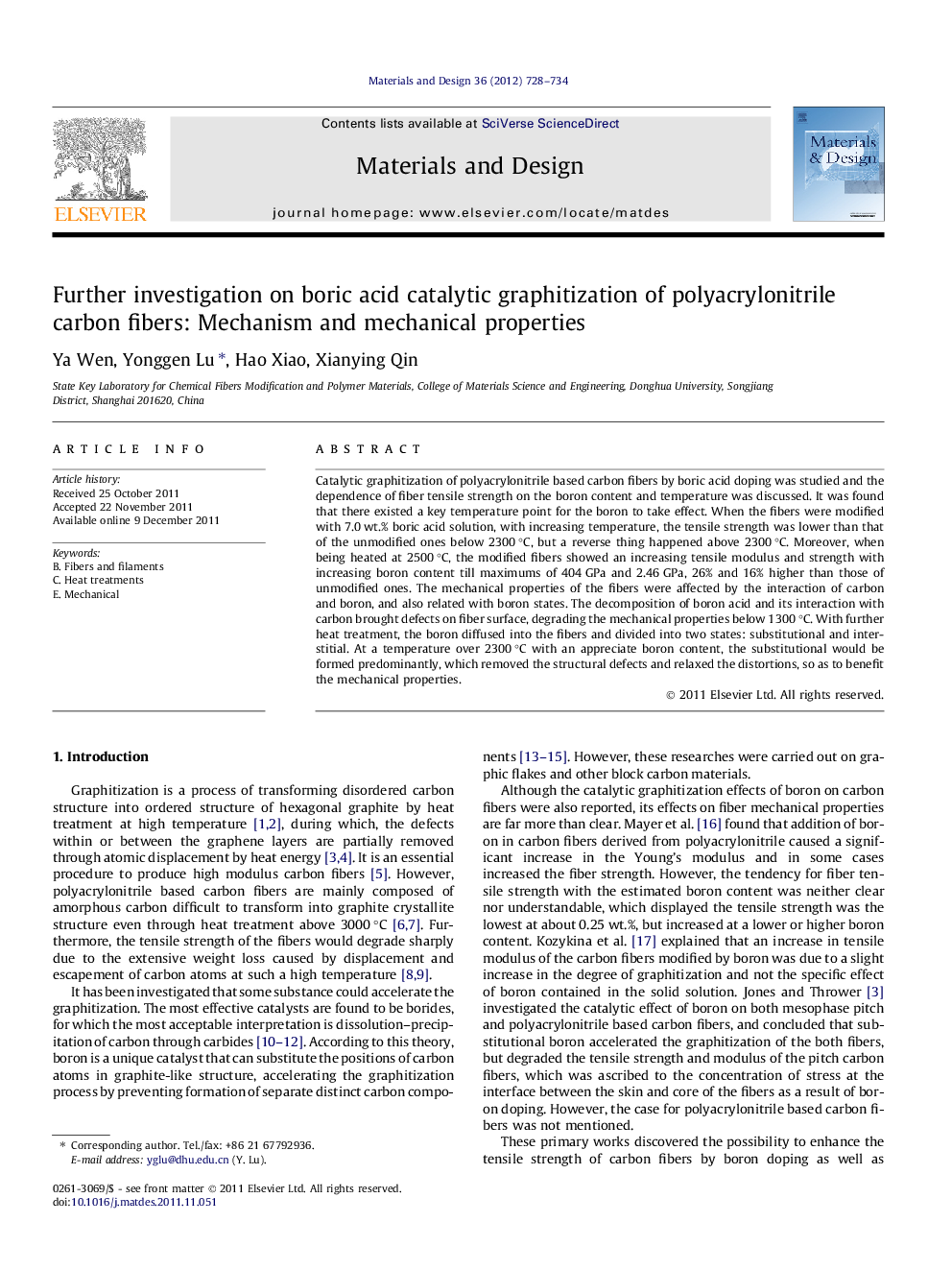| Article ID | Journal | Published Year | Pages | File Type |
|---|---|---|---|---|
| 830902 | Materials & Design (1980-2015) | 2012 | 7 Pages |
Catalytic graphitization of polyacrylonitrile based carbon fibers by boric acid doping was studied and the dependence of fiber tensile strength on the boron content and temperature was discussed. It was found that there existed a key temperature point for the boron to take effect. When the fibers were modified with 7.0 wt.% boric acid solution, with increasing temperature, the tensile strength was lower than that of the unmodified ones below 2300 °C, but a reverse thing happened above 2300 °C. Moreover, when being heated at 2500 °C, the modified fibers showed an increasing tensile modulus and strength with increasing boron content till maximums of 404 GPa and 2.46 GPa, 26% and 16% higher than those of unmodified ones. The mechanical properties of the fibers were affected by the interaction of carbon and boron, and also related with boron states. The decomposition of boron acid and its interaction with carbon brought defects on fiber surface, degrading the mechanical properties below 1300 °C. With further heat treatment, the boron diffused into the fibers and divided into two states: substitutional and interstitial. At a temperature over 2300 °C with an appreciate boron content, the substitutional would be formed predominantly, which removed the structural defects and relaxed the distortions, so as to benefit the mechanical properties.
► The modulus of carbon fiber was improved by boric acid at the temperature range of 1500–2900 °C. ► 2300 °C is a key temperature degree from which the boron began to benefit fiber strength. ► The fiber strength was affected by the boron reaction and related to the boron states.
